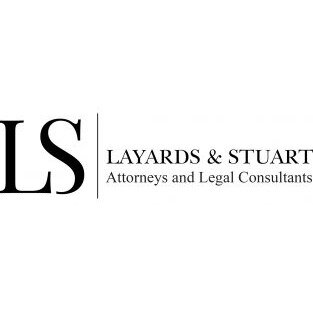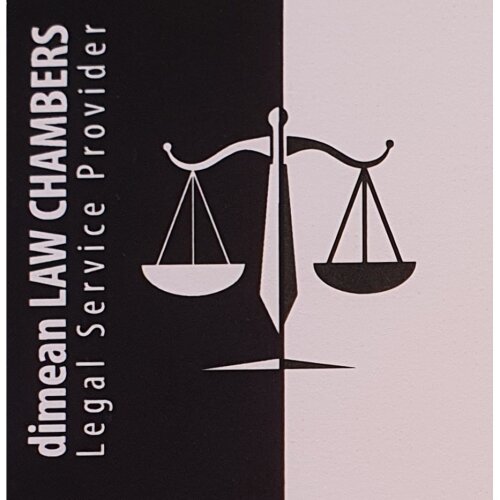Best Hiring & Firing Lawyers in Sri Lanka
Share your needs with us, get contacted by law firms.
Free. Takes 2 min.
Or refine your search by selecting a city:
List of the best lawyers in Sri Lanka
About Hiring & Firing Law in Sri Lanka
The laws governing hiring and firing in Sri Lanka are designed to protect both employers and employees, ensuring fair practices and adherence to the legal framework. Sri Lankan employment laws are embedded within several statutes, including the Shop and Office Employees Act, the Industrial Disputes Act, and the Termination of Employment Act, among others. These laws provide guidelines on contracts, termination procedures, employee rights, and employer responsibilities, aiming to balance interests while maintaining workplace harmony. Understanding these laws is crucial for both employers and employees to ensure compliance and equity in employment practices.
Why You May Need a Lawyer
There are several reasons why individuals or businesses might need legal assistance concerning hiring and firing in Sri Lanka:
- Contractual Disputes: Navigating disputes related to employment contracts or terms of employment.
- Unlawful Termination: If an employee feels wrongfully terminated, they may require legal representation to seek redress.
- Redundancy and Retrenchment: Legal advice may be necessary for handling large-scale redundancies or understanding compensation packages.
- Compliance with Regulations: Ensuring that the hiring and termination processes comply with local employment laws to avoid legal repercussions.
- Mediation and Arbitration: When disputes arise, legal counsel can help mediate or arbitrate effectively.
In such scenarios, a lawyer specializing in employment law can provide crucial guidance and representation.
Local Laws Overview
Sri Lanka's employment law landscape encompasses several key statutes focusing on hiring and firing:
- Employment Contracts: Contracts must be in writing and clearly outline the job role, salary, and conditions of employment.
- Termination of Employment: Governed by the Termination of Employment Act, specifying the procedures for lawful termination, including providing notice and compensation.
- Dispute Resolution: The Industrial Disputes Act provides mechanisms for resolving labor disputes, including arbitration and labor tribunals.
- Non-Discrimination: Laws prohibit discrimination based on gender, race, or religion in hiring and termination processes.
- Redundancies and Retrenchment: Employers must follow specific procedures and provide compensation when terminating employees due to redundancies.
- Worker's Rights: Laws ensure the protection of workers' rights, including fair wages, safe working conditions, and the right to organize.
Frequently Asked Questions
What should be included in an employment contract in Sri Lanka?
An employment contract should include the employee’s duties, work hours, remuneration, duration of the probation period (if applicable), termination notice period, and any other relevant terms.
How is termination notice handled in Sri Lanka?
Termination notice must comply with the contractual terms or, in the absence of a contract, the provisions outlined in employment laws, such as giving a minimum of one month’s notice for redundant employees.
Can an employee be fired without cause?
No, Sri Lanka’s laws typically require just cause for termination, such as misconduct, incompetence, or redundancies, with appropriate notice or payment in lieu of notice.
What is the procedure for handling a redundancy?
Employers must follow due process, including notifying labor authorities and providing severance benefits as stipulated by law.
How does retrenchment compensation work?
Retrenchment compensation should follow statutory guidelines, usually calculated based on years of service, to ensure fair treatment for affected employees.
Are employees entitled to severance pay?
Yes, under the Termination of Employment Act, employees are entitled to severance pay, which varies based on tenure and the conditions of dismissal.
What are the remedies for wrongful termination?
Employees can seek redress through labor tribunals, which may award reinstatement, compensation, or both if wrongful termination is established.
How can a foreign company comply with local hiring laws?
Foreign companies should adhere to Sri Lankan employment laws, seek local legal counsel, and ensure employment contracts meet statutory requirements.
What rights do employees have against discrimination?
Employees are protected against discrimination based on gender, race, and religion, with legal recourse available through labor tribunals or courts.
How does legal mediation work in labor disputes?
Legal mediation involves a neutral third party to facilitate negotiation between the employer and employee, seeking a mutually acceptable resolution to disputes.
Additional Resources
For more information or assistance, consider reaching out to the following resources:
- The Department of Labour in Sri Lanka - for issues regarding employment standards and regulations.
- Legal Aid Commission of Sri Lanka - offering legal assistance services to those in need.
- Chambers of Commerce and industry organizations - often provide resources and guidance for employers.
- Professional Legal Consultants - specializing in labor law for personalized advice.
Next Steps
If you need legal assistance concerning hiring and firing in Sri Lanka, consider the following steps:
- Consult with a lawyer specializing in employment law to evaluate your situation.
- Gather all relevant documents, including employment contracts, communications, and notices.
- Contact the Department of Labour or a legal aid organization if you require immediate assistance or information.
- Consider mediation or arbitration if you seek a less adversarial resolution to your dispute.
Taking proactive steps can protect your rights and help achieve a fair resolution.
Lawzana helps you find the best lawyers and law firms in Sri Lanka through a curated and pre-screened list of qualified legal professionals. Our platform offers rankings and detailed profiles of attorneys and law firms, allowing you to compare based on practice areas, including Hiring & Firing, experience, and client feedback.
Each profile includes a description of the firm's areas of practice, client reviews, team members and partners, year of establishment, spoken languages, office locations, contact information, social media presence, and any published articles or resources. Most firms on our platform speak English and are experienced in both local and international legal matters.
Get a quote from top-rated law firms in Sri Lanka — quickly, securely, and without unnecessary hassle.
Disclaimer:
The information provided on this page is for general informational purposes only and does not constitute legal advice. While we strive to ensure the accuracy and relevance of the content, legal information may change over time, and interpretations of the law can vary. You should always consult with a qualified legal professional for advice specific to your situation.
We disclaim all liability for actions taken or not taken based on the content of this page. If you believe any information is incorrect or outdated, please contact us, and we will review and update it where appropriate.
Browse hiring & firing law firms by city in Sri Lanka
Refine your search by selecting a city.

















